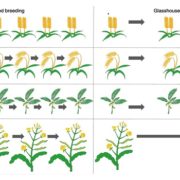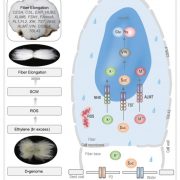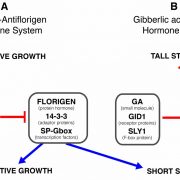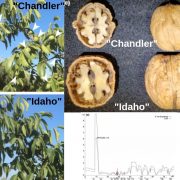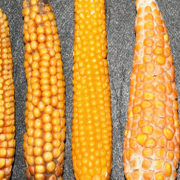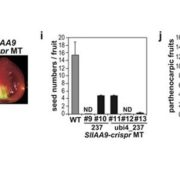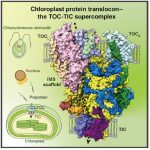Review: Power and perils of de novo domestication
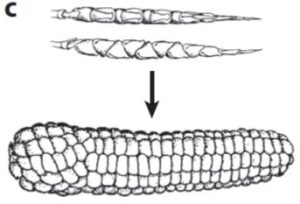 I’m excited by the ways that knowledge about plant developmental and metabolic programs is being used to make new varieties of plants. This excellent review describes some of these applications such as changes in fruit size or seed number. De novo domestication is a specific type of application that allows the introduction of some of these desired traits (selected over thousands of years) into wild, undomesticated plants, and there are many approaches being employed. Traits that facilitate breeding, for example by rendering plants self-compatible or introducing monoecy (separate male and female flowers on a single plant, as in corn) can be introduced to support further domestication efforts. But which plants to start with? Unlike botanists of yore, we now recognize, respect, and acknowledge the contributions of indigenous knowledge into our discipline. As written here, “Working with indigenous knowledge holders should be collaborative, not extractive….. Technological innovation that grounds local contexts (economic, social, ecological) and that includes scientists and farmers from the Global South from the very beginning will go a long way to prevent history from repeating itself.” Bravo! (Summary by Mary Williams @PlantTeaching) Annu. Rev. Plant Biol. 10.1146/annurev-arplant-053122-030653
I’m excited by the ways that knowledge about plant developmental and metabolic programs is being used to make new varieties of plants. This excellent review describes some of these applications such as changes in fruit size or seed number. De novo domestication is a specific type of application that allows the introduction of some of these desired traits (selected over thousands of years) into wild, undomesticated plants, and there are many approaches being employed. Traits that facilitate breeding, for example by rendering plants self-compatible or introducing monoecy (separate male and female flowers on a single plant, as in corn) can be introduced to support further domestication efforts. But which plants to start with? Unlike botanists of yore, we now recognize, respect, and acknowledge the contributions of indigenous knowledge into our discipline. As written here, “Working with indigenous knowledge holders should be collaborative, not extractive….. Technological innovation that grounds local contexts (economic, social, ecological) and that includes scientists and farmers from the Global South from the very beginning will go a long way to prevent history from repeating itself.” Bravo! (Summary by Mary Williams @PlantTeaching) Annu. Rev. Plant Biol. 10.1146/annurev-arplant-053122-030653


